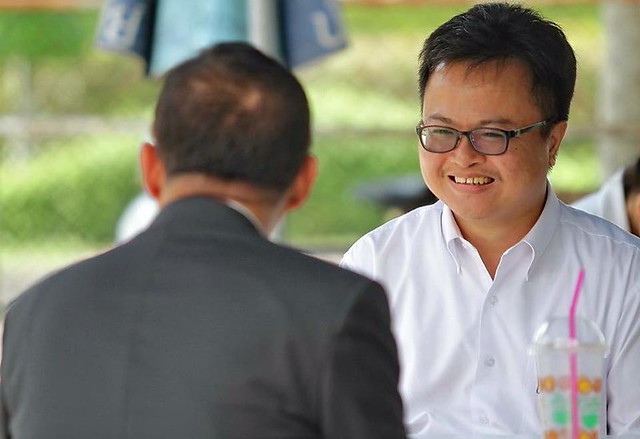
Feb 17, 2021 | News, Non-legal submissions
In a joint letter to the President of the Lawyers Council of Thailand, the ICJ and Lawyers for Lawyers raised concerns on the disbarment proceeding against Mr. Anon Nampha, a lawyer and human rights defender. The organisations believe that the proceedings unduly interfere in his work as a lawyer and serves to impair the exercise of his human rights, including the right to freedom of expression.
Dear President of the Lawyers Council of Thailand,
Re: Disbarment Proceedings Against Mr. Anon Nampha
Lawyers for Lawyers is an independent and non-political foundation that seeks to promote the proper functioning of the rule of law by pursuing freedom and independence of the legal profession.
International Commission of Jurists (ICJ), a global non-governmental organization composed of 60 eminent judges and lawyers, works to advance understanding and respect for rule of law as well as the legal protection of human rights throughout the world.
We write to your office concerning the disbarment proceeding against Mr. Anon Nampha, a lawyer and human rights defender, that is taking place before the Investigative Committee that was established by the Committee on Professional Ethics of the Lawyers Council of Thailand during the Meeting No. 1/2564 on 13 January 2021. We are concerned that the proceeding unduly interferes in his work as lawyer, including in representation of clients, and serves to impair the exercise of his human rights, including the right to freedom of expression.
According to our information, we understand that the proceeding against lawyer Anon Nampha is related to a complaint motion filed to the Lawyers Council of Thailand on 7 August 2020 by Mr. Aphiwat Khanthong, Assistant Minister in the Office of the Prime Minister, claiming to be acting in his capacity as a private attorney at Or Amporn Na Takua Tung and Friends Law Office. Mr. Aphiwat Khanthong alleged that lawyer Anon Nampha’s behaviour violated the Lawyers Council of Thailand’s disciplinary rules as, he claims, it would “incite, intend to cause unrest, distort information and insult on the monarchy”. The alleged speech in question apparently called for reform of the monarchy, during a Harry Potter-themed protest at the Democracy Monument on Ratchadamnoen Avenue on 3 August 2020.
Under international law and standards, lawyers, like other individuals, enjoy the right to freedom of expression, belief, association and assembly. A lawyer should be able to draw the public’s attention to issues relating to public affairs in their official capacity as well as in their private capacity. Suspensions or revocations of lawyer licenses as a result of exercise of their legitimate rights and freedoms do not only impact on the exercise of the rights of the lawyers, but also on the rights of their clients to be represented by the lawyer of their choosing.
Download the full letter in English and Thai.
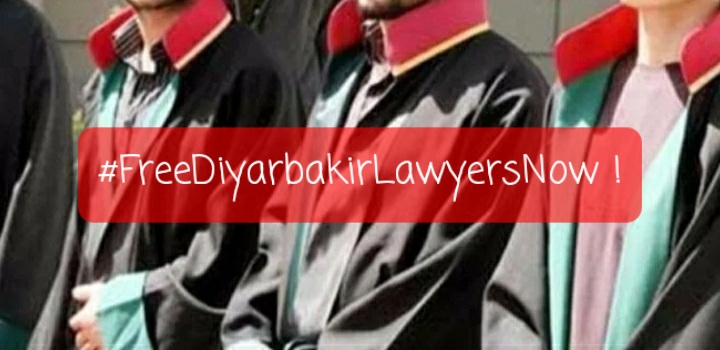
Nov 20, 2020 | News
The ICJ expressed today its deep concern at the arrest of some 26 lawyers and the investigation of around 100, including lawyers active in the defence of human rights, in South East Turkey.
The arrests and investigations are on charges of “establishing organizations in favour of an illegal organisation”, an offence often used to arrest human rights defenders in Turkey.
Around 26 lawyers were arrested this morning, 20 November, at around 5 a.m. and taken to the Anti-Terror Branch of the Police in Diyarbakır in South East Turkey as part of an investigation against the Democratic Society Congress. The ICJ understands that around 100 lawyers are concerned by this investigation that also concerns the Lawyers Association for Freedom (ÖHD).
“We are concerned that these lawyers have been arrested under vague charges that are often used in Turkey to target human rights defenders ,” said Roisin Pillay, Director of the ICJ Europe and Central Asia Programme,
“Unless law enforcement officers and prosecutors promptly substantiate such charges with adequate evidence, as well as demonstrating valid grounds for their detention, the lawyers must be released immediately.”
The ICJ will follow the case closely to ascertain whether international law and standards are respected in any action against the lawyers concerned.
“Lawyers are often subject to bogus charges in Turkey to curb their work, including in defence of human rights, and the exercise of their freedom of expression,” added Roisin Pillay.
The ICJ stressed that lawyers should never be subject to arrest for the legitimate exercise or defence of human rights or for the exercise of their professional functions. In the event that any of the lawyers arrested on 20 November are subject to charges for cognizable crimes consistent with Turkish and international law, they must be brought promptly before a court to further consider whether specific grounds exist to justify their continued detention. If charged, they must be ensured the right of fair trial by an independent and impartial court.
Background
It is understood from documents shared by unofficial sources that lawyers’ houses in Diyarbakır have been raided as a part of an ongoing investigation conducted against the Democratic Society Congress (“DSC”). DSC was established in 2007 and continued its work at the premises of Diyarbakır municipality in between 2011-2014. Its members included deputies, mayors, and councillors. The Speaker of the Parliament of the time, officially invited the DSC to the meetings of the Constitutional Reconciliation Commission in 2012. However, following the state of emergency declared in July 2016 a criminal investigation against the DSC was initiated. In 2018, the building of the DSC was raided under this investigation and information about the Congress was gathered during that operation. It is understood that the arrests were made based on information obtained in that search. In the search warrant issued by the public prosecutor today, security forces were asked to look for “organisational documents” such as books, journals, articles, newspapers etc. as evidence. From this warrant, it is clear that the operation conducted against lawyers are not related to acts of violence.
The detained lawyers and human rights defenders are: Lawyers Association for Freedom co-chair Av. Bünyamin Şeker, İHD Adıyaman branch head av. Bülent Temel, ÖHD and İHD member lawyers Abdulkadir Güleç, Eshat Aktaç, Serdar Talay, İmran Gökdere, Diyar Çetedir, Serdar Özer, Feride Laçin, Gamze Yalçın, Gevriye Atlı, Resul Tamur, Cemile Turhallı Balsak, Ahmet Kalpak, Devrim Barış Baran, Neşet Girasun, Sedat Aydın, Mahsum Batı, Şivan Cemil Özen and Haknas Sadak, former TTB Central Council Member and still Honorary Board member Dr. Şehmus Gökalp, HRFT Diyarbakır Representation Office employee, Social Service Expert Serkan Delidere, MED Prisoner and Convict Families Association of Legal and Solidarity Associations Federation (TUHAD-FED) executive Diyar Dilek Özer and federation member Leyla Ayaz, DİVES member Süleyman Okur, Bağlar Municipality Council member Panayır Çelik,
Contact:
Roisin Pillay, e: roisin.pillay(a)icj.org
Massimo Frigo, e: massimo.frigo(a)icj.org
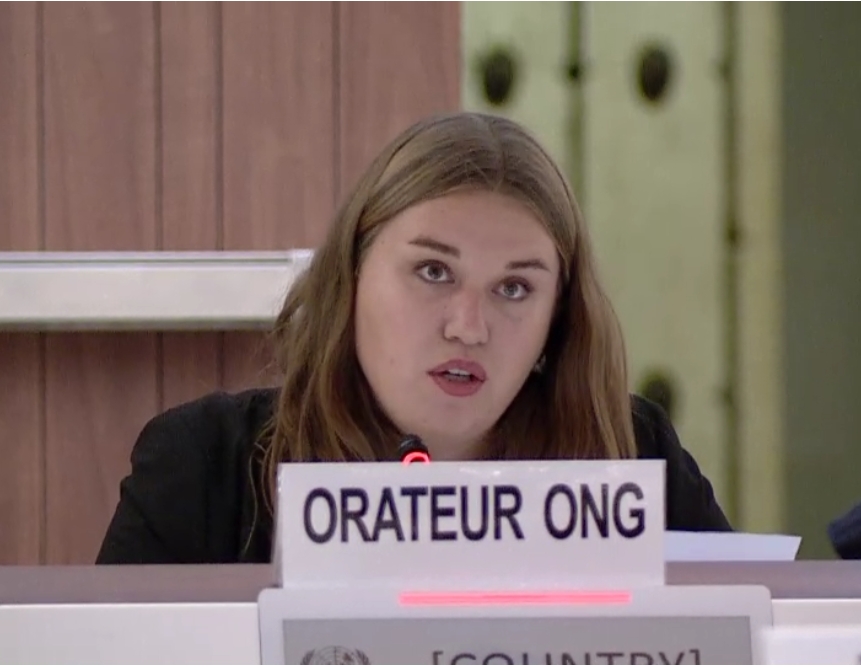
Oct 5, 2020 | Advocacy, Non-legal submissions
The ICJ today highlighted the need for accountability for crimes under international law in Libya, and concerns for the independence of lawyers in Ukraine, at the UN Human Rights Council in Geneva.
The oral statement, delivered in the general debate on technical cooperation and capacity building, read as follows:
“Madame President,
The International Commission of Jurists (ICJ) welcomes the oral updates on Ukraine and Libya.
Technical assistance and capacity building objectives in Libya can only be achieved if the protection of human rights, entrenchment of the rule of law and pursuit of accountability are prioritized.
States should support the Fact-Finding Mission by extending its reporting mandate, increasing contributions to the UN budget necessary to establish the Mission’s secretariat, and fully cooperating with it.
States should also support the Berlin Process working groups, ensuring that the political and accountability pillars work in unison and making meaningful commitments to implement their recommendations.
Across all of Ukraine, lawyers continue to be associated with their clients and may face consequences for representing them by private individuals and also through abuse of legal proceedings. High-profile cases bear risks for independent lawyers who choose to diligently represent their clients.
The decline in security of lawyers in and outside of courts, and the problem of threats, harassment, and attacks against lawyers, should be addressed as a matter of priority, including through technical cooperation. Measures should be taken to build the capacity of law enforcement agencies and court security personnel to ensure that lawyers and others involved in court proceedings can work in an atmosphere free from intimidation, harassment, and improper interference.
Thank you.”
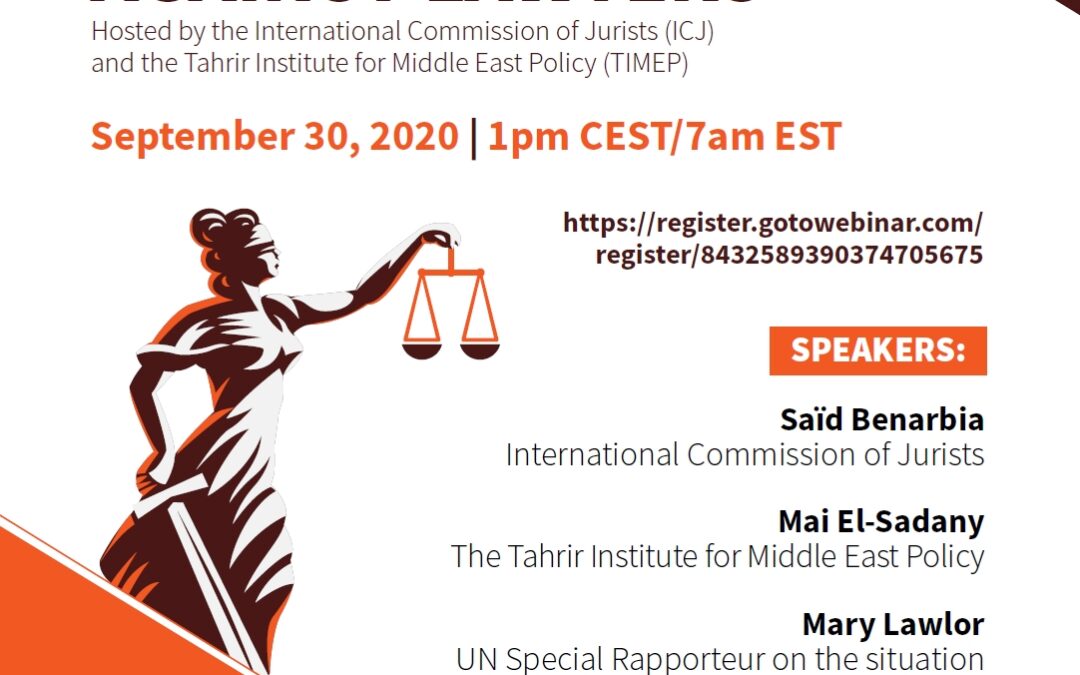
Sep 28, 2020 | Events, News
Join this panel discussion with ICJ, the Tahrir Institute, and the UN Special Rapporteur on human rights defenders, Wednesday 30 September 2020, 13:00.
Targeting the Last Line of Defense:
Egypt’s attacks against lawyers
A Virtual Side Event to the Human Rights Council 45th Session
Wednesday 30 September 2020, 13:00 – 14:30 (Geneva time)
The International Commission of Jurists (ICJ) and the Tahrir Institute for Middle East Policy (TIMEP) cordially invite you to join this online side event, including the UN Special Rapporteur on human rights defenders, this coming Wednesday.
The ICJ and TIMEP will present their joint report Targeting the last line of defense: Egypt’s attacks against lawyers. The report documents systematic targeting of lawyers through arbitrary arrests and detention, physical assaults, torture and enforced disappearances, as well as politicized criminal proceedings under counter-terrorism and other overbroad laws.
In the report, the ICJ and TIMEP call on the Egyptian authorities to immediately end their crackdown on lawyers and to unconditionally release all lawyers who are detained or convicted solely on the basis of the peaceful exercise of their human rights and/or the legitimate discharge of their professional duties.
Speakers:
- Mary Lawlor, UN Special Rapporteur on the situation of human rights defenders
- Saïd Benarbia, International Commission of Jurists
- Mai El-Sadany, The Tahrir Institute for Middle East Policy
Register for the event here:
https://attendee.gotowebinar.com/register/8432589390374705675.
For more information contact: un(a)icj.org
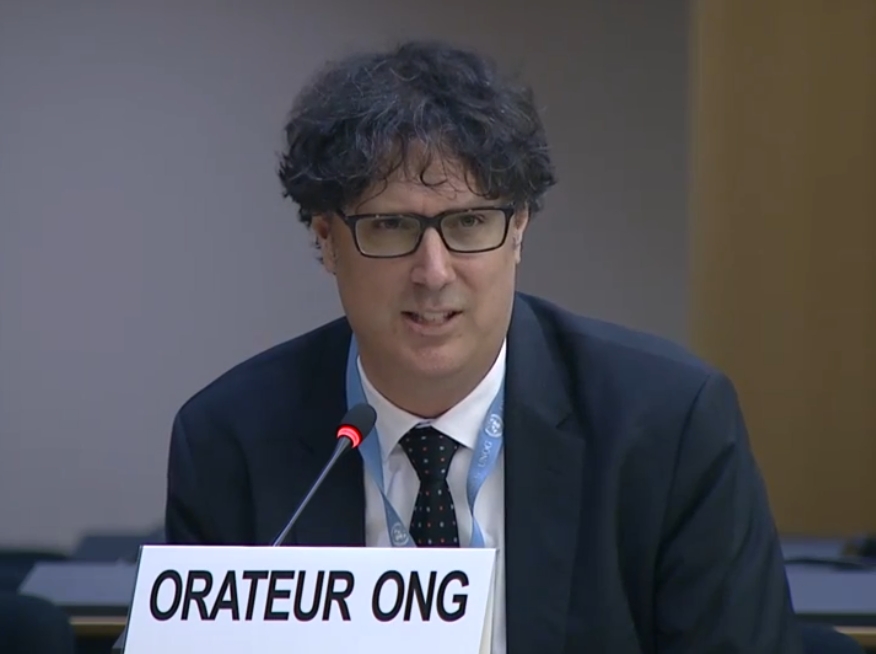
Sep 25, 2020 | Advocacy, Non-legal submissions
Today at the UN Human Rights Council, the ICJ together with the Tahrir Institute for Middle East Policy, drew attention to ongoing attacks on the independence and role of lawyers in Egypt.
The ICJ made the oral statement during the general debate on country situations of concern, speaking on behalf also of the Tahrir Institute for Middle East Policy. The statement read as follows:
“The International Commission of Jurists (ICJ) and the Tahrir Institute for Middle East Policy draw the Council’s attention to the continuing deterioration of the situation for human rights and the rule of law in Egypt.
Today our organizations published a new report, Targeting the Last Line of Defense: Egypt’s Attacks against Lawyers, to be followed by a virtual side event on 30 September.
As the last line of defense against the government’s sustained and broad crackdown on human rights and fundamental freedoms, Egypt’s lawyers have been increasingly and systematically targeted by authorities. Since 2018, at least 35 lawyers have been arrested and arbitrarily detained for their legal defense work and exercise of fundamental freedoms.
Lawyers have been subject to arbitrary arrest and detention, physical assault, torture and other ill-treatment, and enforced disappearances, as well as unfounded and politicized criminal proceedings based on charges under grossly overbroad criminal laws on “terrorism,” “spreading false news,” and “misusing social media.” Arrests of lawyers spiked in the wake of the September 2019 protests. Arrests continue despite the risk of a COVID-19 outbreak in detention facilities.
The ICJ and Tahrir Institute call on Egyptian authorities to end these violations of the rights and role of lawyers, to take measures to protect the independence of the Bar Association, and to amend all relevant legal frameworks in line with Egypt’s constitution and international human rights law and standards.
Thank you.”
The full statement can be downloaded (PDF) here: UN-Advocacy-Egypt-HRC45-2020
For more information, contact: un@icj.org









